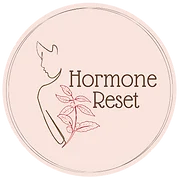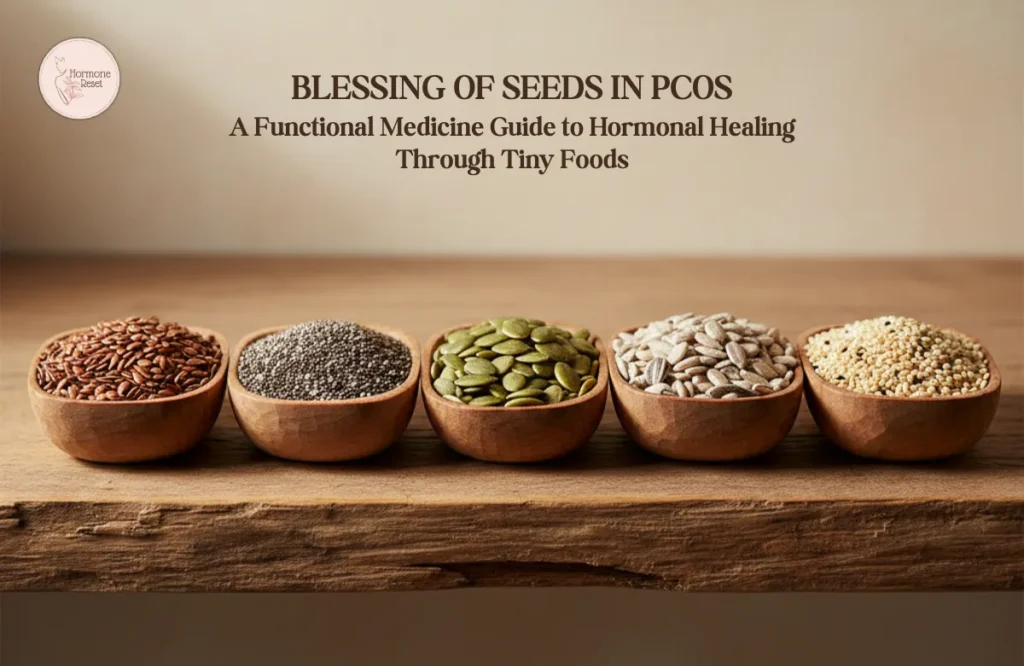Are you tired of the constant discomfort and unpredictability of Irritable Bowel Syndrome (IBS)? You’re not alone. Millions of people worldwide struggle with this frustrating condition, often feeling like they’re at the mercy of their own digestive system. But what if there was a way to break free from the cycle of symptoms and find lasting relief?
Enter the root cause approach to healing IBS. Unlike traditional methods that focus solely on managing symptoms, this revolutionary strategy aims to uncover and address the underlying factors contributing to your digestive distress. By delving deeper into the origins of IBS, we can unlock the door to true healing and long-term wellness.
In this blog post, we’ll explore the comprehensive journey from understanding IBS beyond its surface-level symptoms to implementing holistic treatment strategies and lifestyle modifications. Get ready to discover how identifying root causes, utilizing advanced diagnostic techniques, and embracing a multifaceted approach can transform your relationship with your gut – and ultimately, your quality of life.
Understanding IBS: Beyond Symptoms
The gut-brain connection in IBS
The intricate relationship between the gut and the brain plays a crucial role in Irritable Bowel Syndrome (IBS). This connection, known as the gut-brain axis, involves a complex network of nerves, hormones, and biochemical signaling between the digestive system and the central nervous system. In IBS patients, this communication can become disrupted, leading to various symptoms.
- Stress and anxiety can exacerbate IBS symptoms
- Gut microbiome imbalances can influence mood and cognitive function
- Neurotransmitters produced in the gut affect brain function and vice versa
Distinguishing IBS from other digestive disorders
While IBS shares symptoms with other gastrointestinal conditions, it has distinct characteristics that set it apart. Understanding these differences is crucial for accurate diagnosis and effective treatment.
| Condition | Key Symptoms | Distinguishing Factors |
| IBS | Abdominal pain, bloating, altered bowel habits | No structural abnormalities, symptoms often relieved by bowel movements |
| Inflammatory Bowel Disease (IBD) | Abdominal pain, diarrhea, weight loss | Visible inflammation, potential complications like strictures or fistulas |
| Celiac Disease | Abdominal pain, diarrhea, fatigue | Triggered by gluten, damage to small intestine visible on biopsy |
Common triggers and their impact
Identifying and understanding common IBS triggers is essential for managing the condition effectively. These triggers can vary from person to person but often include:
- Certain foods (e.g., dairy, caffeine, high-fat meals)
- Stress and emotional factors
- Hormonal changes (especially in women)
- Sleep disturbances
- Medications (such as antibiotics)
The impact of these triggers can range from mild discomfort to severe symptoms that significantly affect daily life. By recognizing and addressing these triggers, individuals with IBS can take proactive steps toward managing their condition and improving their quality of life.
Now that we have a deeper understanding of IBS, let’s explore the root causes that contribute to this complex disorder.
Identifying Root Causes of IBS
Now that we understand the complexity of IBS beyond its symptoms, let’s delve into the underlying factors that contribute to this condition. Identifying the root causes is crucial for developing an effective treatment plan.
A. Hormonal influences
Hormones play a significant role in digestive health and can greatly impact IBS symptoms. The following table illustrates key hormones and their effects on the gut:
| Hormone | Function | Impact on IBS |
| Serotonin | Regulates gut motility | Imbalance can lead to constipation or diarrhea |
| Cortisol | Stress response | Excessive levels can increase gut sensitivity |
| Estrogen | Affects gut motility | Fluctuations may worsen symptoms during menstrual cycle |
B. Stress and emotional factors
Stress and emotions are intricately linked to gut function through the gut-brain axis. Common emotional triggers for IBS include:
- Anxiety
- Depression
- Chronic stress
- Trauma or PTSD
C. Food sensitivities and intolerances
Certain foods can trigger or exacerbate IBS symptoms. Common culprits include:
- FODMAPs (Fermentable Oligosaccharides, Disaccharides, Monosaccharides, and Polyols)
- Gluten
- Dairy products
- Caffeine and alcohol
D. Gut microbiome imbalances
The balance of beneficial and harmful bacteria in the gut can significantly impact IBS symptoms. Factors that can disrupt the microbiome include:
- Antibiotic use
- Poor diet
- Chronic stress
- Infections
Understanding these root causes is essential for developing a comprehensive treatment strategy. In the next section, we’ll explore advanced diagnostic techniques to pinpoint the specific factors contributing to your IBS symptoms.
Comprehensive Diagnosis Techniques
Now that we’ve explored the root causes of IBS, let’s delve into the comprehensive diagnosis techniques that can help identify the specific triggers and underlying issues for each individual.
A. Stress Assessment Tools
Stress plays a significant role in IBS, and identifying stress levels is crucial for effective management. Here are some commonly used stress assessment tools:
- Perceived Stress Scale (PSS)
- Holmes-Rahe Stress Inventory
- Depression Anxiety Stress Scales (DASS)
These tools help quantify stress levels and provide insights into how stress may be impacting IBS symptoms.
B. Elimination Diets and Food Journals
Identifying food triggers is essential for managing IBS. Two effective methods include:
- Elimination diets: Temporarily removing potential trigger foods and gradually reintroducing them to identify sensitivities.
- Food journals: Keeping detailed records of food intake and symptom occurrence to spot patterns.
| Elimination Diet Phase | Duration | Purpose |
| Elimination | 2-4 weeks | Remove potential trigger foods |
| Reintroduction | 2-3 days per food | Gradually reintroduce foods to identify triggers |
| Maintenance | Ongoing | Avoid identified trigger foods |
C. Functional Medicine Testing Options
Functional medicine offers advanced testing options to uncover underlying imbalances:
- Comprehensive stool analysis: Assesses gut microbiome, digestive function, and inflammation markers
- Food sensitivity testing: Identifies specific food intolerances
- Small Intestinal Bacterial Overgrowth (SIBO) breath test: Detects bacterial overgrowth in the small intestine
- Organic acids test: Evaluates metabolic function and gut health markers
These diagnostic techniques provide a holistic view of an individual’s gut health, allowing for more targeted and effective treatment strategies. Next, we’ll explore holistic treatment approaches that address the root causes identified through these comprehensive diagnosis techniques.
Holistic Treatment Strategies
Now that we’ve explored the root causes and diagnostic techniques for IBS, let’s delve into holistic treatment strategies that address the condition comprehensively.
A. Stress Management Techniques
Stress plays a significant role in exacerbating IBS symptoms. Implementing effective stress management techniques can lead to substantial improvements:
- Deep breathing exercises
- Progressive muscle relaxation
- Mindfulness meditation
- Regular exercise routines
B. Mind-Body Practices for IBS Relief
Mind-body practices offer powerful tools for managing IBS symptoms:
- Cognitive Behavioral Therapy (CBT)
- Hypnotherapy
- Biofeedback
- Yoga
| Practice | Benefits for IBS |
| CBT | Reduces anxiety and negative thought patterns |
| Hypnotherapy | Alleviates abdominal pain and improves gut motility |
| Biofeedback | Enhances control over physiological processes |
| Yoga | Combines stress reduction with gentle physical activity |
C. Gut-Healing Supplements
Certain supplements can support gut healing and alleviate IBS symptoms:
- L-glutamine
- Zinc carnosine
- Omega-3 fatty acids
- Curcumin
D. Targeted Probiotic Therapy
Probiotics play a crucial role in restoring gut balance. Specific strains have shown promise for IBS:
- Lactobacillus plantarum 299v
- Bifidobacterium infantis 35624
- Saccharomyces boulardii
E. Personalized Nutrition Plans
Tailoring nutrition to individual needs is essential for managing IBS:
- Identify trigger foods through elimination diets
- Implement low FODMAP diet when appropriate
- Increase fiber intake gradually
- Stay hydrated with adequate water intake
By integrating these holistic treatment strategies, individuals with IBS can experience significant relief and improved quality of life. Next, we’ll explore lifestyle modifications that can further support the long-term management of IBS symptoms.
Lifestyle Modifications for Long-term Management
Now that we’ve explored various treatment strategies, let’s focus on the crucial lifestyle modifications that can help manage IBS in the long term.
Mindful Eating Practices
Adopting mindful eating habits can significantly improve IBS symptoms. Here are some key practices to incorporate:
- Eat slowly and chew thoroughly
- Pay attention to hunger and fullness cues
- Avoid distractions during meals (e.g., TV, phones)
- Practice gratitude for your food
Implementing these practices can lead to better digestion and reduced stress around meals.
Exercise Routines that Support Digestion
Regular physical activity is beneficial for overall health and can help alleviate IBS symptoms. Consider incorporating the following exercises:
| Exercise Type | Benefits for IBS |
| Yoga | Reduces stress, improves digestion |
| Walking | Stimulates gut motility |
| Swimming | Low-impact, full-body workout |
| Cycling | Boosts circulation, aids digestion |
Aim for at least 30 minutes of moderate exercise most days of the week.
Sleep Optimization for Gut Health
Quality sleep is crucial for maintaining a healthy gut. Here are some tips to improve your sleep:
- Stick to a consistent sleep schedule
- Create a relaxing bedtime routine
- Avoid large meals and caffeine close to bedtime
- Keep your bedroom cool, dark, and quiet
- Limit screen time before sleep
By prioritizing good sleep habits, you can support your gut health and overall well-being.
Addressing Irritable Bowel Syndrome (IBS) requires a comprehensive approach that goes beyond symptom management. By focusing on identifying and treating root causes, employing advanced diagnostic techniques, and implementing holistic treatment strategies, individuals with IBS can achieve lasting relief. This root cause approach not only alleviates symptoms but also promotes overall gut health and well-being.
Embracing lifestyle modifications is crucial for long-term IBS management. By incorporating dietary changes, stress reduction techniques, and regular exercise into daily routines, those affected by IBS can take control of their condition and significantly improve their quality of life. Remember, healing from IBS is a journey, and with the right approach and support, it’s possible to achieve lasting gut health and comfort.

References:
- Raskov H, Burcharth J, Pommergaard HC, Rosenberg J. Irritable bowel syndrome, the microbiota and the gut-brain axis. Gut Microbes. 2016 Sep 2;7(5):365-83. doi: 10.1080/19490976.2016.1218585. Epub 2016 Jul 29. PMID: 27472486; PMCID: PMC5046167. – Read here
- Harper A, Naghibi MM, Garcha D. The Role of Bacteria, Probiotics and Diet in Irritable Bowel Syndrome. Foods. 2018 Jan 26;7(2):13. doi: 10.3390/foods7020013. PMID: 29373532; PMCID: PMC5848117. – Read here
- Altayar O, Sharma V, Prokop LJ, Sood A, Murad MH. Psychological therapies in patients with irritable bowel syndrome: a systematic review and meta-analysis of randomized controlled trials. Gastroenterol Res Pract. 2015;2015:549308. doi: 10.1155/2015/549308. Epub 2015 Jan 31. PMID: 25802514; PMCID: PMC4329838. – Read here
Share





Leave a Reply